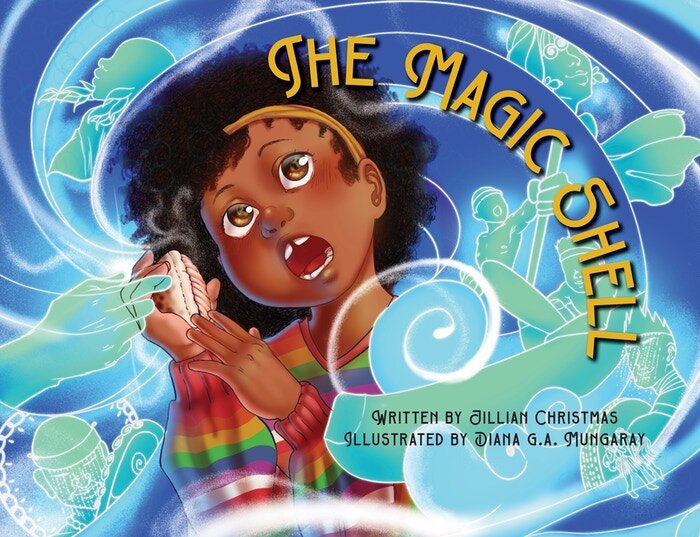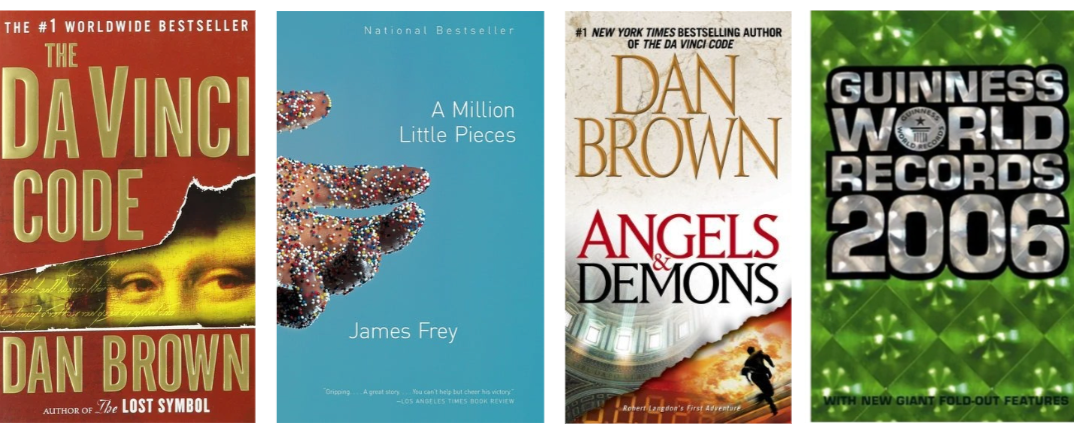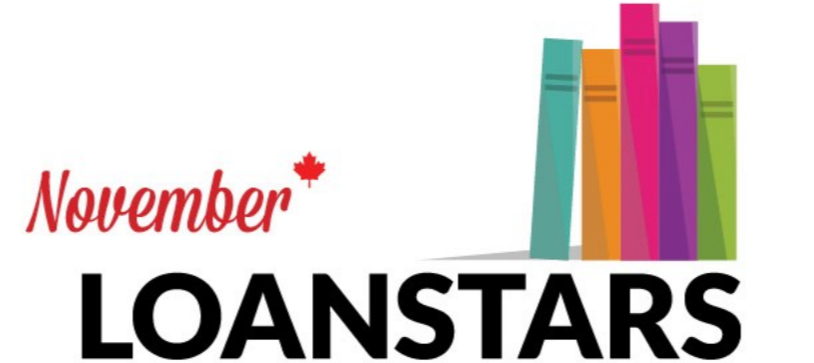We’re back with another instalment of our 5 questions with series. Similar to our previous blog post, we’re highlighting the work of folks who have been championing literature by and about LGBT2Q+ peoples.
This time, we had the pleasure of interviewing S. Bear Bergman from Flamingo Rampant, a micropress founded by Bear and j wallace skelton that makes books featuring topics around racial justice, disability pride, kids taking action, and most of all loving, positive LGBT2Q+ families and communities.
So far they’ve published 22 books — not including six additional forthcoming titles. The Flamingo Rampant team prides themselves on showing that LGBT2Q+ kids, families, and communities are full of fun, celebration, adventure, shenanigans, and lots of love.
Now, without further ado, let’s get to Bear’s answers to our questionnaire.
1. The pandemic’s still here, the Pride parade may be virtual, but it’s still Pride month! Looking at the last year, what’s been your biggest success story? What are you proud of?
Besides keeping my children alive, what am I most proud of? I think I’m most proud of continuing to find ways to stay connected to queer and trans communities. I’m proud to be able to reach out to schools and organizations that are trying to understand how to welcome and celebrate 2SLGBTQ kids and families, to support them working on that path — or that series of paths — while we plan for the times when we can be together. I think I’m also proud that we’ve been able to reach so many places that would have been more difficult to travel to, into rural and remote communities, when the cost would have been prohibitive to have a live author visit, but by zoom it becomes more accessible.
2. Readers and book buyers face numerous challenges when trying to find LBGTQ2+ content. Can you share strategies you have put in place to promote specific titles/genres that have brought great results?
So to begin with, our entire mandate is making own voices 2SLGBTQ books. So for us, it’s not so much a matter of what we make, as a matter of helping book buyers, schools, libraries, and parents to understand what to look for in celebratory and positive 2SLGBTQ books.
For us, that begins with focusing on queer and trans creators, especially queer and trans creators from additionally marginalized identities and communities, like Black and Indigenous and people of colour, and like disabled creators. Also, when we make books, we are always primarily focused on the value of those books as mirrors.
The brilliant educator, Dr. Rudine Sims Bishop, discusses the idea that for a child, any book is either a window — that is a book that shows them an experience that they don’t have access to in their regular life, or the book is a mirror — it reflects their experience back to them.
When books are produced that are primarily windows, there’s always a danger that they show a version of someone’s experience that is designed to appeal to an outsider. And while that’s valuable, our mandate at Flamingo Rampant is that our first duty is to the child who doesn’t see their own experience reflected often or ever.
For us, that means making books where 2SLGBTQ kids and families and communities are well and loved and peaceful. It is also where the creators of the materials are always, ALWAYS, writing from their own lived experience, which we believe — and research does bear out — gives the best possible place for a kid to walk into a celebratory queer or trans moment, regardless of that child’s previous experience with 2SLGBTQ topics. No one’s identity is ever a problem. There’s never harassment. There’s never bullying. There’s never violence or ostracization. There are kids getting to do kid things: solving problems, having adventures, hunting for pirates, going to space, meeting dragons, making mistakes, and just having fun.
What we find is that those stories are interesting to every child, and they’re interesting for a lot longer than books that you would expect to find in the “special issues” section. I think children and educators and parents value our books for that reason. You know, we always want to make books that you could read to a child before bedtime and say, “Sweet dreams!” and mean it.
3. Flamingo Rampant describes its mission as "producing feminist, racially-diverse, LGBTQ positive children’s books, in an effort to bring visibility and positivity to the reading landscape of children everywhere." How has that mission developed over time and what would you suggest other industry peers keep top at the mind as they consider mission-driven publishing?
So the first thing is, our mandate has not expanded or developed very much over time. We have focused consistently on the one critical thing: making positive and celebratory 2SLGBTQ books. I think resisting “scope creep” has kept us in business where other projects have struggled. So the next part of the answer is: at the end of the day, we’re focused on justice of the imagination. Our primary concern, always, is who isn’t seeing themselves lovingly represented in children’s literature? We’re always thinking about where children or parents and educators are in a place of grief. A grief that is born of not ever being able to populate their imagination or their children’s imagination with possibility models that are inviting, loving, and exciting.
There’s a loss in that, that people who don’t have that experience never have to contend with. If your children are white and able bodied, and your family is heterosexual and lives in the suburbs, there are a million books that show ways your children can be happy, safe, and free. There are a million books that show ways your kids can grow and prosper and be real on the landscape of the imagination.
For children who don’t have that, who have very few books, or sometimes even none, that depict their family, their experience, their celebrations, the specific and valuable ways that they are loved and welcomed and cared for, there’s an injustice there. And that imagination injustice weighs on their spirits. And in some ways, it allows an opening for other people to prey on their spirit. So, for us, the mission — the mission of justice of the imagination — guides everything we do from the beginning to the end. This means finding the people to make the books, to write them, and to illustrate them. It means helping those people learn some of the necessary, industry-specific skills, if they don’t already have them — which many of them don’t, because the industry of children’s publishing has not always been welcoming to marginalized creators. And then making the books that give children that sense of joy and freedom that everyone deserves.
It’s not just about the product. It’s about every step of the process being in keeping with our mission. If you’re working in mission-driven publishing, my feeling is your mission should be that compelling. It should feel like literal life or death … or at least wellness and wholeness or disenfranchisement. And if it does, I think that people will do whatever is necessary to fulfill their mission.
4. What advice do you have for someone from the LBGTQ2+ community looking to start their career in the book industry?
Probably my primary advice is: Seek out 2SLGBTQ editors and publishers. By and large, my experience is that even the most well-meaning heterosexual and cisgender people have a hard time connecting on an emotional level to queer and trans joy. It’s much easier for them to connect to queer and trans pain and suffering, because that’s the narrative that the culture has required us to offer for so long in order to be taken seriously. So now we’re in a moment, where that’s all that seems real. It’s all that seems valid. And so projects that rely on pain and suffering or pity or difficulty followed by a sort of complicated triumph are what people outside of our community are used to. That’s what they’ve seen sell before, and that’s what they believe in as a future commercial product.
If you have or want to make stories that are about joy and love — or even just people getting to be their whole selves while doing other things, I think it’s queer and trans people in publishing — or I guess 2SLGBTQ people in publishing — that are the most likely to recognize and champion those stories and that work.
Of course, there are a few exceptions, and we see those exceptions, particularly in the genres. I see it in science fiction and fantasy, and I see it in romance as well. But honestly, those “genres” are a light year ahead in terms of letting people bring fully, whole 2SLGBTQ characters into the work — even by cis-gender, heterosexual authors. You know? Look at what they’re doing in comics. Look what Daniel José Older is doing in the Star Wars franchise. People are making a space there in genre fiction that mainstream fiction is still not really doing. And it’s nice that that is starting to change. But if you’re just beginning, and you don’t want to have a fight every time you want a queer or trans character to be loved or joyful, then my best advice is either start in queer publishing or start in genre.
5. What are some trends in LGBTQ2+ writing and publishing you’re excited about?
I’m very excited about the increase in attention to own voices books. That’s been a critical part of our mandate since we started in 2010, before it was a hashtag. And I feel incredibly grateful to see other people beginning to understand why it’s important, especially in children’s literature.
I love the fact that more complicated stories are beginning to be presented. I’m thinking about Torrey Peters’ Detransition, Baby, I’m thinking about Charlie Jane Anders’ recent books, and Kacen Callender. But for a very long time, the books with queer content that got the best book deals were books that I think of as “my peculiar relative” books, where a straight person would write about their queer relative, or a cis-gender person would write about their trans relative. But while a couple of those books are really good, most of them are just kind of okay, and they take up space in publishing that could be put to better use by 2SLGBTQ people taking about our own experiences. And those books are out there, and they’re good.
So, it’s both energizing and soothing to see, finally, after over 15 years in publishing, that the mainstream is recognizing the value of work that has always been artistically superlative but has been pushed to the margins.
[BONUS] Other than yourself, who is a change-maker the publishing and bookselling industry should know about?
I think Brian Lam at Arsenal Pulp has been doing so much for so long, and people are just beginning to notice what his impact in opening up the market has been. In mainstream publishing, I’ve been pretty excited by some of what I’ve been seeing recently from Jared Bland at McClelland & Stewart. Also in kid's lit, Suzanne Sutherland at Harper Collins — she’s brought out several books that I have felt really good about, including a book featuring a nonbinary kid recently that avoided SO many of the issues I see people fumble in gender-diverse kids lit, and delivered a super-fun story as well.
Thanks to Bear for taking the time to answer our questionnaire. Here’s to many more years of creating and publishing happy stories for all readers.
Find all the instalments part of our 5 questions with series here.

















Happy holidays!